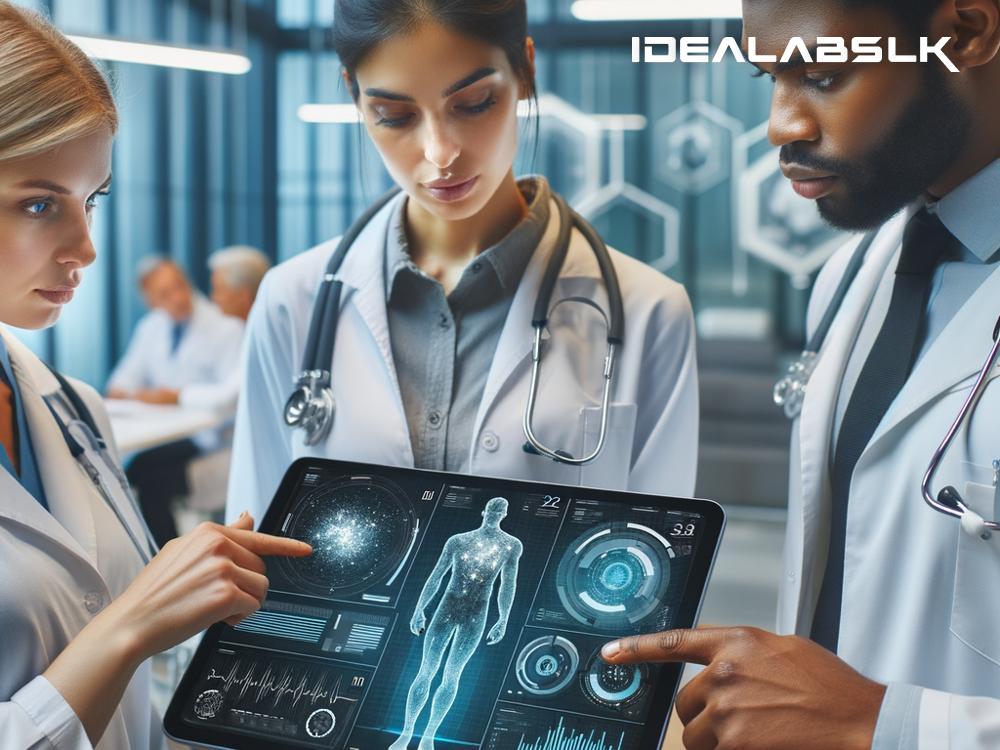The Impact of AI-Driven Diagnostics: How Technology is Revolutionizing Healthcare in 2024
The world we live in today is incredibly different from just a decade ago, thanks to the rapid advancement of technology. One of the most groundbreaking changes has occurred in the healthcare sector, with Artificial Intelligence (AI) playing a leading role. In 2024, AI-driven diagnostics are not just a buzzword but a reality that's transforming how we approach healthcare, making it more efficient, accessible, and personalized. Let’s dive into how this technology is revolutionizing the healthcare industry.
Faster and More Accurate Diagnoses
Traditionally, diagnosing diseases could be a complex, time-consuming process often requiring multiple tests and the expertise of specialists. With AI-driven diagnostics, the game has changed. AI algorithms, trained on vast amounts of medical data, can identify patterns and anomalies that might be invisible to the human eye. For instance, AI can analyze medical images like X-rays or MRIs much faster than a radiologist, often with greater accuracy. This means diseases can be caught earlier, treatment can start sooner, and patients have better chances of recovery.
Making Specialty Care More Accessible
In many parts of the world, access to specialty care, especially in rural or underserved areas, is a significant challenge. AI-driven diagnostics are breaking down these barriers. By leveraging AI, primary care doctors can perform tasks that traditionally required a specialist's input, such as interpreting specialized diagnostic tests. This not only speeds up the patient care process but also makes specialist-level care more accessible to those who might otherwise go without.
Personalized Healthcare
One of the most exciting aspects of AI in healthcare is its potential for personalization. Every person's body, lifestyle, and health history are unique, and AI-driven diagnostics help to tailor medical care to the individual. By analyzing vast datasets, AI can help predict how different treatments might work for different patients, taking into account their genetic makeup, lifestyle factors, and other health conditions. This approach, often called precision medicine, ensures that patients receive the most effective treatments with the least side effects.
Reducing Healthcare Costs
The adoption of AI in diagnostics is also set to significantly reduce healthcare costs. By increasing the efficiency and accuracy of diagnostics, AI helps to cut down on unnecessary tests, hospital stays, and even invasive procedures that might otherwise have been undertaken without a precise diagnosis. This not only benefits patients but also helps to alleviate the financial burden on healthcare systems globally.
Enhancing Patient Empowerment and Engagement
AI-driven diagnostics tools are increasingly becoming available directly to consumers, enabling individuals to take a more active role in their health management. From smartphone apps that can analyze symptoms and suggest potential diagnoses to wearable devices that monitor vital signs and flag anomalies, these tools empower patients to engage with their health proactively. This shift towards more informed, empowered patients could fundamentally change the doctor-patient relationship, leading to better health outcomes.
Challenges and Considerations
While the potential of AI in diagnostics is vast, it's not without its challenges. Issues around data privacy, security, and the need for robust regulatory frameworks to ensure the safety and efficacy of AI applications in healthcare are critical considerations. Moreover, there is the question of trust – both from healthcare providers and patients – in machines to make accurate and ethical health-related decisions.
The Future is Bright
Despite these challenges, the future of healthcare in 2024 looks bright with AI-driven diagnostics at the forefront. As technology continues to evolve and integrate into the healthcare sector, we can expect even more innovative applications that will further enhance patient care, improve outcomes, and lead to a more efficient and effective health system.
In summary, AI-driven diagnostics are revolutionizing healthcare by providing quicker, more accurate diagnoses, making specialty care more accessible, personalizing healthcare, reducing costs, and empowering patients. As we look to the future, the continued advancement of AI in healthcare promises not just to improve how we diagnose and treat diseases but fundamentally transform the very nature of healthcare for the better.

